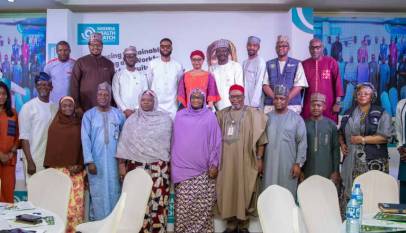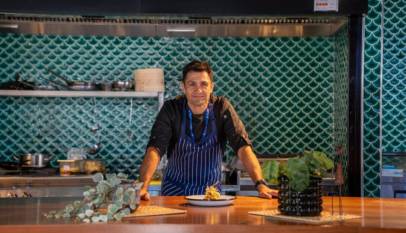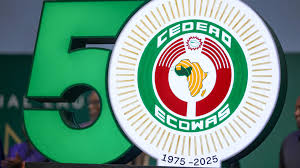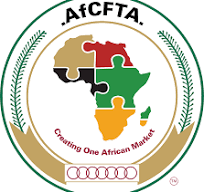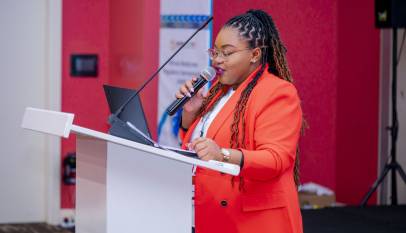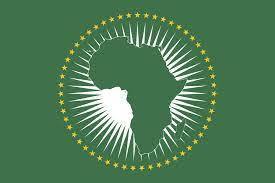Street begging: Keeping disabled people off the street in northern Nigeria
A community-led approach to ending the menace of street begging by disabled people at the grassroots in northern Nigeria through skills acquisition programs for the disabled is helping to keep them off the street and help them achieve self-reliance.

Street begging is synonymous with People with Disability (PWDs) all over northern Nigeria, thus it is not uncommon to see the disabled (young and old) roaming not only major roads and streets but also nooks and crannies of cities and towns seeking for alms. The phenomenon of begging among PWDs has over time become a serious menace; it constitutes an eye sore to both residents and visitors in major cities and towns all over the region.
But ending street begging in northern Nigeria – which is more associated with people with special needs like lepers, the blind, the deaf and the crippled – has always been a contentious issue as many see it as part of the culture and tradition of the people of the region with others even erroneously viewing it as a religious practice.
This is why attempts by governments in the region to ban street begging always proves to be an uneasy adventure as several attempts by governments to enact laws were met with resistance. It was in a bid to check this menace that in 2013 Kano state enacted a law prohibiting child and adult begging in streets, roundabouts, motor parks and corner shops.
Thus, in the aftermath of the law banning street begging in Kano state, the people of Dawakin Tofa local government area of the state, which is home to a government-owned skills acquisition centre for the blind, decided to make better use of the skills acquisition centre; to provide empowerment opportunities for the community’s teeming disabled people and therefore help keep them off the street as well as make them self-reliant.
The decision to make better use of the centre was taken during a needs assessment meeting by people with disability in Dawakin Tofa facilitated by the Mobilising for Development (M4D) programme, a grassroots governance program funded by the UK’s Department for International Development (DFID), and being implemented in 9 local government areas across the 3 states of Jigawa, Kaduna and Kano.
In a bid to upgrade the disabled people’s skills acquisition centre at Dawakin Tofa for optimal use not only for the blind but also for other categories of PWDs like lepers, deaf, and the crippled, Mobilising for Development (M4D) provided training facilities for carpentry, tailoring soap-making, among others while the community’s disabled people themselves renovated the center.
Dayyabu Marke is one of blind people who with the support of M4D was trained in weaving and now works at the skills acquisition centre in Dawakin Tofa and have thus far produced and sold several camp beds. He says the skill he has acquired has changed his life and that of members of his family.
“M4D has put us on the path to progress; it is now our responsibility to ensure the sustainability of the centre. We are encouraging those who learn skills to also train other people with disability in their respective communities. We are therefore coming up with a sustainability plan to that effect,” says Marke.
Isah Isiyaku is a community leader in Dawakin Tofa and a trustee of the centre who said as community leaders in Dawakin Tofa they were already engaged in discussions on how to expand the operations of the skills acquisition centre to cater for other categories of PWDs like lepers, the deaf, and crippled when M4D came in to support their initiative.
The trustees of the centre who are not disabled themselves are mostly retired civil servants from across Dawakin Tofa community who oversee the affairs of the centre as well as provide financial support to the centre and offer marketing strategies for the PWDs to help them sell products of the centre.
“The PWDs who are beneficiaries of the centre now no longer have to beg; they are more useful to themselves and their community in general. The centre has a good leadership structure which will help ensure sustainability, and there is already a market for the products they are producing the only challenge is capital; the skills acquisition centre need more capital to enhance its functions,” says Isiyaku.
Hafizu Aliyu is Mobilising for Development’s community development outreach officer in Dawakin Tofa who said the skills acquisition centre has provided a source of livelihood for disabled people from various communities across Dawakin Tofa local government area.
“There are PWDs coming from as far as Jalli and Ganduje communities to practice their trade and at the end of the day, they are not only able to recoup the money they spent on transport and feeding but also have extra money to go back home with. The centre is now also able to sponsor the education of some of its members who are deaf,” says Aliyu.
The Dawakin Tofa is no doubt an effective way of tackling the menace of begging among the PWDs in northern Nigeria hence the need for stakeholders including governments, community leaders, NGOs, and development partners in the region to support and replicate such initiatives.
The Convention on the Rights of Persons with Disabilities, which is an international human rights treaty of the United Nations that aims to protect the rights and dignity of persons with disabilities, was adopted by the UN General Assembly in December 2006. Among others, the convention provides for People with Disabilities (PwDs) the rights to health, vote, and education, access to justice, as well as adequate standard of living and social protection.
Moreover, as well as ending stigma and discrimination against PwDs, providing them with empowerment opportunities is as well believed to be crucial for the successful realization of “Leaving no one behind” which is one of the key themes of the United Nation’s Sustainable Development Goals (SDGs).


